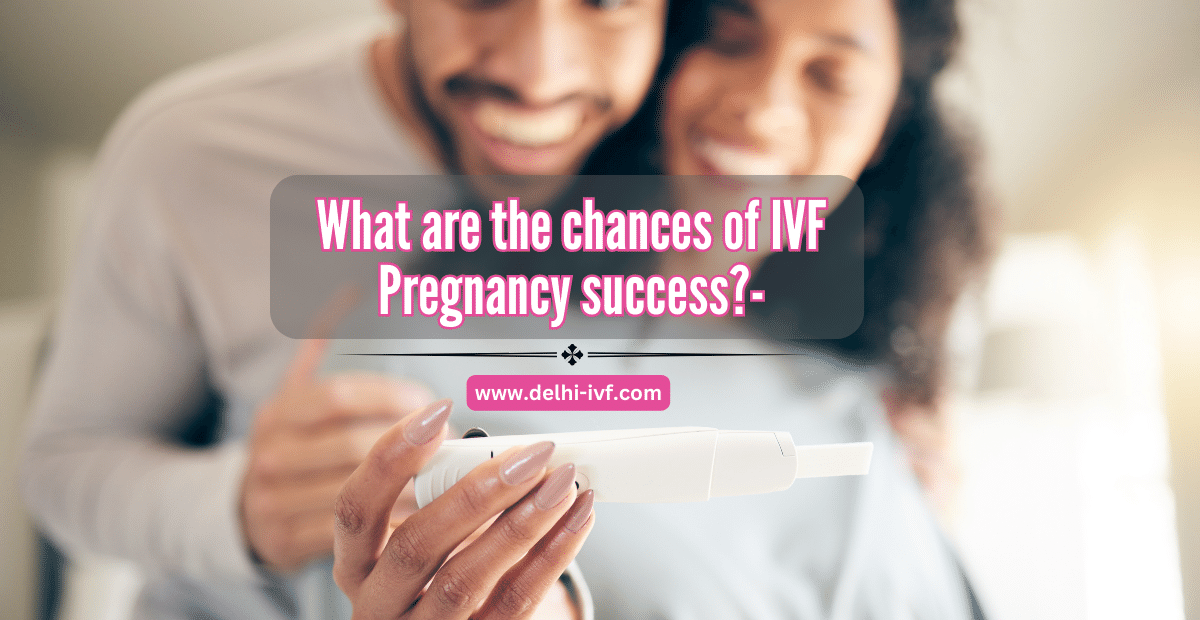There is no denying the fact that IVF has proved to be a blessing for millions of couples and individuals dealing with the evils of infertility. That said, the chances of accomplishing a successful pregnancy through In Vitro Fertilization (IVF) is still a big concern for numerous couples considering this treatment. That said, to supply a quick viewpoint, this article dives into the variables affecting IVF success rates, varieties over diverse socioeconomics, and the advancing scene of IVF technology.
Key Variables Impacting IVF Pregnancy success
Age of the Woman: The age of the woman pursuing IVF really matters and may influence the overall IVF success. Moreover, women below the age group of 35 regularly have the most noteworthy success rates, regularly cited around 40%. Also, these rates slowly diminish with age, dropping drastically for women over 40. Hence, we can say that the age factor comes really crucial for ascertaining the IVF success rates.
Random infertility Issues: According to the medical professionals across the world, the root cause of infertility largely impacts success rates. Moreover, issues like blocked fallopian tubes or male factor infertility may have distinctive success rates compared to conditions like unexplained infertility.
Egg and Sperm Quality: The health and motility of eggs and sperm are key factors that further decide the IVF success rate. On the other side, lower quality can stem from different components, including age, lifestyle and list of other factors.
Lifestyle components: Components such as smoking, weight, and over the top liquor intake can contrarily influence IVF success. Hence, people addicted to such habits must cut down in order to increase the success rates.
Past medical History: Past pregnancies, unsuccessful labors, and prior IVF experiences impact success rates of the IVF treatment. That said, a history of effective and successful pregnancies may anticipate higher IVF success.
Type of IVF treatment in use: The choice between traditional IVF and Intracytoplasmic Sperm injection (ICSI), depending on the particular infertility issue, can impact success rates.
How IVF Success Rates are measured in general?
By Age: For women under the age of 35, success rates per IVF cycle are around 40%. That said, this diminishes to 20-35% for women within the age group of 35-37. At the same time, the success rate is 15- 20% for women within the age of 38-40 years, and it goes down to 10% for women over 40.
By Cycle: The overall success rate increments with more IVF cycles. Also, by the third cycle, numerous
couples achieve the desired success.
How important is the embryo quality in assessing the success rate?
High-quality embryos have a more noteworthy probability of fertilizing effectively. That said, the embryo assessment systems in labs check the quality, considering various key components. On the other side, innovation in genetic screening, like Preimplantation genetic Testing (PGT), can help the professionals to select embryos with the most impactful potential for a successful pregnancy.
Other key aspects that impact the IVF success rate!
How Frozen embryo (FET)
There are few recent surveys that recommend that FET may offer higher success rates compared to fresh embryo implantations. Moreover, this can be highly unlikely due to the more natural state of the uterus at the time of transfer, as it’s not affected by the hormones utilized within the egg retrieval process.
Recent scientific innovations
Over the years, medical sciences have introduced some new techniques and methods into the ART domain. These innovations empower more personalized and exact treatment to further bring the desired results for the intended parents. While few of the innovations have been helpful, others have completely changed the way ART methods have been looked forward to.
Mental and Emotional Factors
The mental and emotional state of patients can in a roundabout way influence IVF success. That said, counseling services and emotional support all through the procedure can prove to be basic in the same regards.
Chances of multiple pregnancies
On the other hand, IVF increases the chances of multiple pregnancies, particularly when multiple embryos are transferred. Also, Single embryo transfer (SET) is usually recommended to decrease this risk, especially in younger women with high-quality embryos.
The expertise and skill set of the fertility clinic
Success rates varies largely among various clinics given to their expertise and skill set. That said, elements like the credentials of the medical professionals, lab in charges, and particular treatment plans contribute to this variance. Moreover, it's essential for couples to inquire about and select a clinic with a track record of higher success rates in their particular domain.
Cost and insurance options
While other key elements contribute to a great extent, the money related viewpoint of IVF, including insurance options and out-of-pocket costs, can impact a couple’s capacity to seek after multiple IVF cycles, eventually influencing their by and large chances of success.
Overall support and emotional counseling
Counseling and support services offered by the fertility clinics play a imperative role in helping couples explore the emotional journey of IVF, contributing to way better by and large results.
Taking care of the legal complexities
At the same time, IVF raises different ethical and legal questions, including the dealing with new embryos and the legal status of embryos. Also, these angles can in a roundabout way affect decision- making forms and choices in IVF medications.
Global variations in IVF Success
Success rates moreover change all inclusive due to global variations in legalities, innovations accessible, and common healthcare systems. Moreover, a few nations have higher success rates due to progressed innovations and way better healthcare practices.
Conclusion
Hence, we can say that the success of IVF is multifaceted and affected by a bunch of components extending from biological and scientific to mental and natural. Whereas age remains a critical determinant, headways in reproductive innovation and personalized treatment approaches are continually increasing the chances of success.
Also, couples must approach IVF with reasonable desires, educated by an understanding of their particular circumstances and the different components that impact IVF results. Moreover, the journey through IVF is as much about strength and trust because it is around the science behind it, and each couple’s journey is always unique to their situation.


 Your Journey to Parenthood Begins with us!
Your Journey to Parenthood Begins with us!